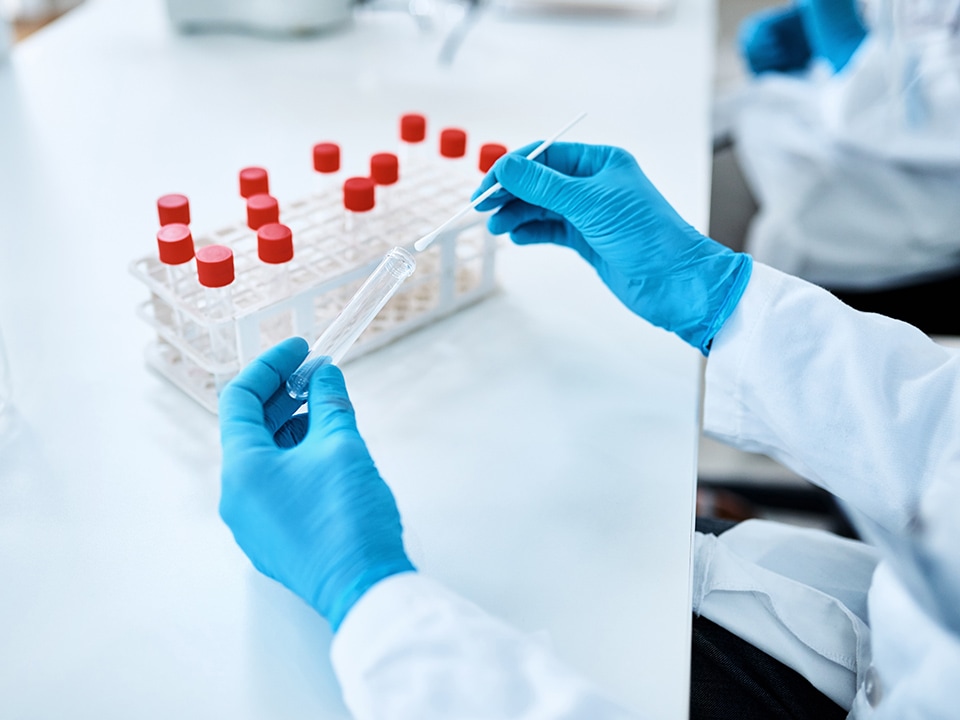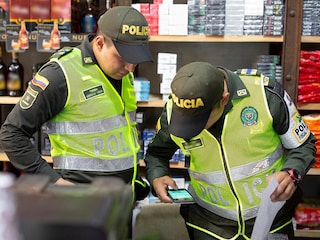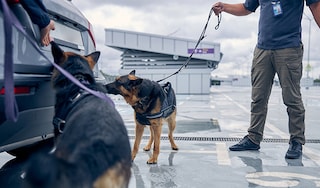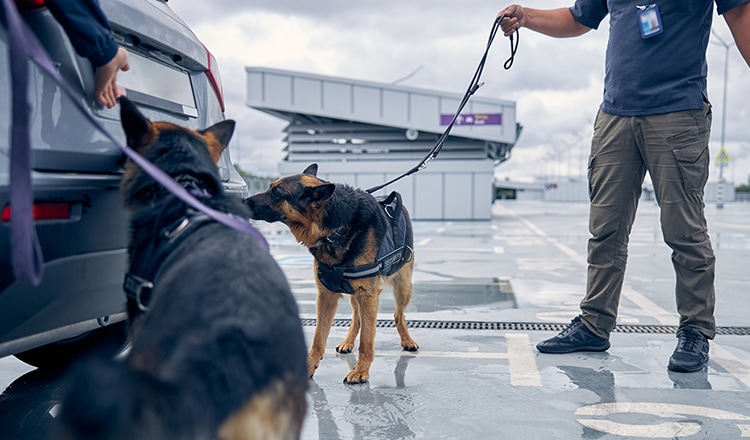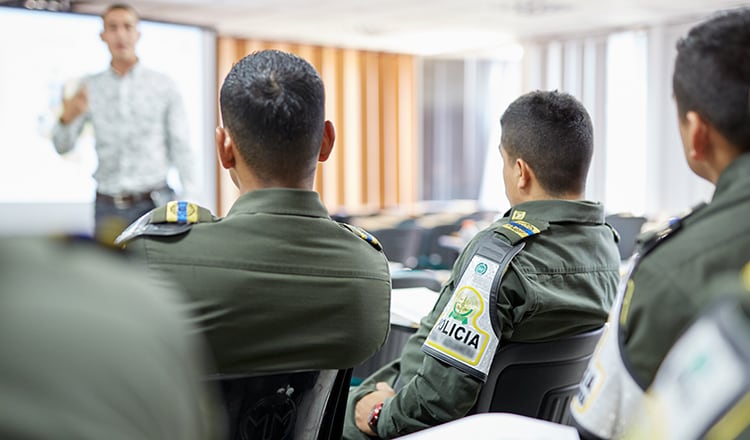Philip Morris International (PMI) has received a Partnership Award from the National Intellectual Property Rights Coordination Center (IPR Center), part of the U.S. Department of Homeland Security (DHS). We were a recipient in the “Evolving Partnerships” category for our campaign to combat the trade of fraudulent goods, such as personal protective equipment (PPE), during the COVID-19 pandemic.
The award also recognizes the recent Illicit Trade Prevention certification course PMI organized and hosted for U.S. law enforcement agents.
There has been a surge in fraud and criminal activity in the wake of the pandemic, with illicit organizations taking advantage of the shortage in masks and other PPE items to sell fake products and deceive the public.
This is what prompted PMI to step in, joining forces with other private sector partners and organizations to raise awareness of this threat and help increase the reporting of fraud to the authorities. Some of those lending their support include:
- U.S. Chamber of Commerce
- United States Council for International Business (USCIB)
- Transnational Alliance to Combat Illicit Trade (TRACIT)
- Merck & Co., Inc.
- Procter & Gamble Company
- Tommy Hilfiger
- Under Armour
- SAS
- Center for Anti-Counterfeiting and Product Protection at Michigan State University
- Luna Global Networks
The initiative, launched back in July and running until the end of the year, is comprised of digital public service advertisements appearing in state and local media and nationally through key publishers—such as the Washington Post, the Wall Street Journal, VICE, Politico, Vox, and CNN—stressing the importance of being alert to inferior and fraudulent goods. The effort was further amplified through earned media and virtual events, including articles in the World Trademark Review and Homeland Security Today and an InsideSources panel featuring Steve K. Francis, Assistant Director of the Global Trade Investigations Division of Homeland Security Investigations.
The COVID-19 pandemic has brought new challenges, but it has also hardened our resolve to protect consumers from substandard and dangerous counterfeit goods. None of the IPR Center’s fiscal year 2020 successes would have been possible without the support and partnerships of the private sector and academic community. The organizations honored today are fully committed to intellectual property enforcement and understand there is no quick fix to the problem.
To date—in addition to driving nearly 220,000 clicks to DHS resources for recognizing and reporting fraud—the campaign has garnered:
- 162,092,545 digital impressions
- 4,081,000 print impressions
- 5,258,400 radio impressions
Government and private sector collaboration is key to IP enforcement
The issue of counterfeit PPE is something the DHS is determined to resolve.
In presenting the award, Francis said: “The COVID-19 pandemic has brought new challenges, but it has also hardened our resolve to protect consumers from substandard and dangerous counterfeit goods.
“None of the IPR Center’s fiscal year 2020 successes would have been possible without the support and partnerships of the private sector and academic community. The organizations honored today are fully committed to intellectual property enforcement and understand there is no quick fix to the problem.”
Utilizing PMI’s expertise in tackling counterfeit products
Commenting on our leadership and formation of the coalition to raise awareness of counterfeit PPE during the COVID-19 pandemic, PMI’s Director of External Affairs, Kristin Reif, said: “Our goal is to raise awareness among consumers and policymakers, and direct them to legitimate resources—and we did just that. We look forward to continued collaborative efforts with both the public and private sectors to combat a common enemy—long after this pandemic has gone.”
Understanding the scale of illicit trade relating to COVID-19
To date, there have been more than 1,600 COVID-19-related seizures of prohibited test kits and medicine, counterfeit masks, and other equipment in the U.S.
This amounts to USD 18.8 million in disrupted transactions and recovered funds, and more than USD 26.6 million in seized illicit proceeds.
“COVID-19 lockdown restrictions have boosted all drivers of illicit trade, and criminals quickly seized opportunities and generated significant amounts of profit,” said Hernan Albamonte, PMI’s head of Illicit Trade Prevention in the U.S. “Criminal networks are using the crisis to supply markets with illicit services and products that are in high demand during the pandemic.”
PMI wins three Platinum MarCom Awards
Recognizing the far-reaching impact of our illicit trade prevention efforts, PMI has also received three prestigious honors at the 2020 MarCom Awards.
Under the entry “Leveraging Partnerships to Combat Fraud Amid COVID-19 Pandemic,” PMI won Platinum strategic communications awards in the categories of “Communication Program,” “Corporate Social Responsibility,” and “Public Service Announcement.”
COVID-19 lockdown restrictions have boosted all drivers of illicit trade, and criminals quickly seized opportunities and generated significant amounts of profit. Criminal networks are using the crisis to supply markets with illicit services and products that are in high demand during the pandemic.
There were more than 5,000 entries from throughout the United States, Canada, and dozens of other countries in the 2020 MarCom Awards—an international creative competition that recognizes outstanding achievement by marketing and communication professionals.
Working to protect consumers from illicit products
These awards underscore the valuable role PMI plays in many areas of wider society, including the prevention of illicit trade.
As illegal transactions surge in this challenging era, collaboration between governments and the private sector is essential to combat intellectual property theft and protect consumers.
No single industry can address this complex problem on its own. Cross-sector partnerships are required, making full use of existing expertise, information sharing, innovative solutions, and evolving technologies. Public actors, the private sector, and civil society alike all have a role to play.
